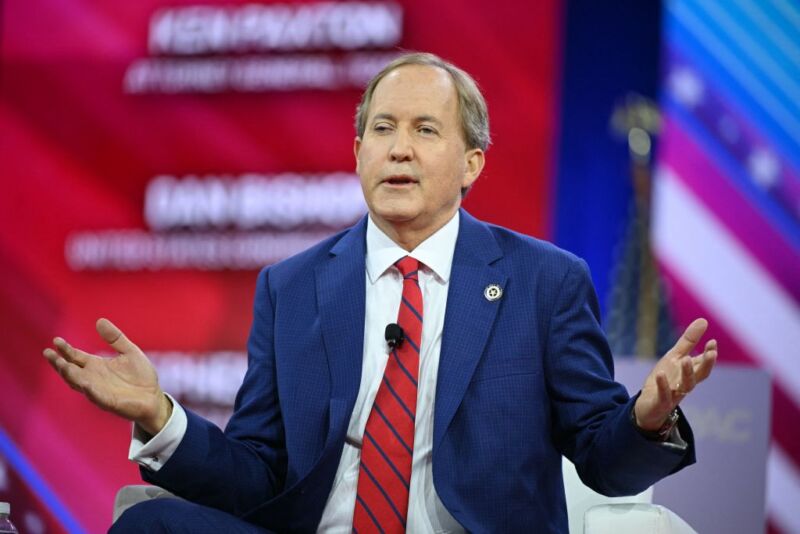Meta to pay $1.4 billion settlement after Texas facial recognition complaint
data harvesting —
Facebook’s parent accused of gathering data from photos and videos without “informed consent.”

Facebook owner Meta has agreed to pay $1.4 billion to the state of Texas to settle claims that the company harvested millions of citizens’ biometric data without proper consent.
The settlement, to be paid over five years, is the largest ever obtained from an action brought by a single US state, said a statement from Attorney General Ken Paxton.
It also marks one of the largest penalties levied at Meta by regulators, second only to a $5 billion settlement it paid the US Federal Trade Commission in 2019 for the misuse of user data in the wake of the Cambridge Analytica privacy scandal.
The original complaint filed by Paxton in February 2022 accused Facebook’s now-closed facial recognition system of collecting biometric identifiers of “millions of Texans” from photos and videos posted on the platform without “informed consent.”
Meta launched a feature in 2011 called “tag suggestions” that recommended to users who to tag in photos and videos by scanning the “facial geometry” of those pictured, Paxton’s office said.
In 2021, a year before the lawsuit was filed, Meta announced it was shuttering its facial recognition system including the tag suggestions feature. It wiped the biometric data it had collected from 1 billion users, citing legal “uncertainty.”
The latest fine comes amid growing concern globally over privacy and data protection risks related to facial recognition, as well as algorithmic bias, although legislation is patchy, differing from jurisdiction to jurisdiction.
In 2021, Facebook agreed to pay a $650 million settlement in a class-action lawsuit in Illinois under a state privacy law over similar allegations related to its face-tagging system.
“This historic settlement demonstrates our commitment to standing up to the world’s biggest technology companies and holding them accountable for breaking the law and violating Texans’ privacy rights,” Paxton said in a statement. “Any abuse of Texans’ sensitive data will be met with the full force of the law.”
Meta previously said that the claims were without merit. However, the company and Texas agreed at the end of May to settle the lawsuit, just weeks before a trial was set to begin.
A spokesperson for Meta said on Tuesday: “We are pleased to resolve this matter, and look forward to exploring future opportunities to deepen our business investments in Texas, including potentially developing data centers.”
© 2024 The Financial Times Ltd. All rights reserved. Please do not copy and paste FT articles and redistribute by email or post to the web.
Meta to pay $1.4 billion settlement after Texas facial recognition complaint Read More »


